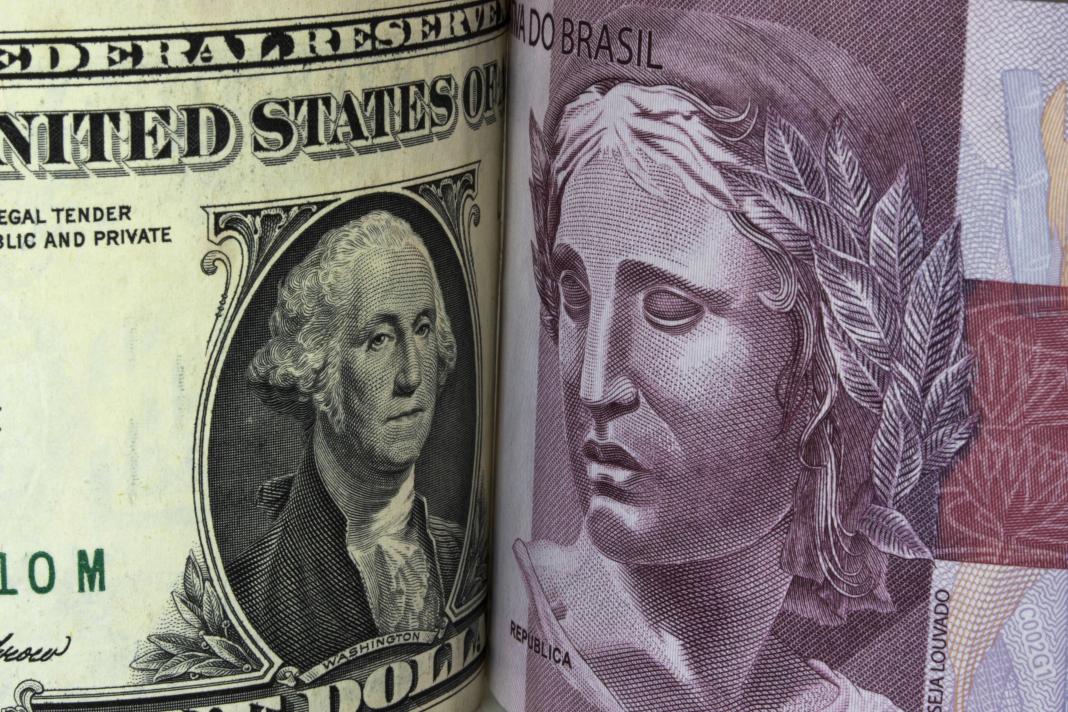RIO DE JANEIRO, BRAZIL – The commercial dollar opened the week falling, as financial agents evaluated the easing of the temperature of the domestic political scene and the prospects that the Central Bank (BC) will have to make more aggressive moves in raising interest rates given inflation expectations for 2022.
Around 10 AM, the commercial dollar was down 0.78%, at R$5.2251 in the spot exchange market. At the minimum, the U.S. currency fell to R$5.2041.

After the letter to the nation released by President Jair Bolsonaro contributed to a recovery effect, at least temporarily, in prices of domestic assets, by softening the tone of criticism on institutions and the Supreme Court (STF), the market now started to observe the chances of progress on the reform agenda in Congress.
The prospect that the Chamber of Deputies will proceed with administrative reform and the Proposal for Amendment to the Constitution (PEC) of Precatórios (federal debts ordered paid to plaintiffs by courts), which would allow a new, more robust Bolsa Família, but still within the spending ceiling, contributes to a session of risk premium withdrawal in local markets.
“To actually create a promising environment for the return of debates regarding new reforms, the relationship between institutions should follow what has been seen in recent days,” says Commcor in a report. According to the broker, a speech in favor of fiscal solutions for the country and with less friction between institutions “should be fundamental for the environment to remain with a reduction of uncertainties and political risks.
Another factor contributing to the dollar’s decline is that the Central Bank will have to promote a more aggressive adjustment in the benchmark Selic rate, which tends to attract capital flow to the country. Earlier, the revisions of the projections made by economists were published in the BC’s Focus Bulletin, which showed a new deterioration in the expected inflation rate, thus increasing the pressure on the monetary authority.
The median of the estimates for the National Wide Consumer Price Index (IPCA) in 2021 jumped again, from 7.58% to 8%, while the median of the projections for inflation in 2022 advanced from 3.98% to 4.03%.
The midpoint of expectations for the Selic rate at the end of this year varied from 7.63% to 8%, and that of the basic interest rate forecast for the end of next year rose from 7.75% to 8%.
In the futures market, the Interbank Deposit (DI) rate for January 2022 rose from 7.28% in the previous adjustment to 7.29%, and the DI for January 2023 varied from 9.16% to 9.14%. In the longer term, the contract rate for January 2025 was down from 10.18% to 10.12%, while the DI for January 2027 was down from 10.58% to 10.49%.
According to Renascença DTVM, the positive international scenario for most of the risk assets and the relatively milder political picture in Brazil sustain the bet for a positive session for the future interest rates today.
“Although the political-institutional framework still generates apprehension and defensive positions of investors, there is an easing of fears,” says the institution, also citing the small turnout at the demonstrations in favor of the impeachment of Bolsonaro.
“We understand that some investors may view with some restrained optimism the recent events of political order since they can open a narrow window for the forwarding of economic agendas,” assesses Renaissance to Valor.
With information from Valor

